- Home
- Graham Hancock
War God: Return of the Plumed Serpent Page 2
War God: Return of the Plumed Serpent Read online
Page 2
Meanwhile Tozi’s own business was here with Guatemoc.
To win him over to the cause of the Plumed Serpent would be a great victory, yet Tozi could barely trust herself to approach him. Indeed, since the last time she had shown herself to him in her disguise as Temaz, goddess of medicines and healing, the very thought of him was enough to make her dizzy – for then the prince had swept her up in his arms and kissed her full on the mouth, and she had tasted his tongue and he had tasted hers. Even now, observing him unseen from the sanctuary of her invisibility, the memory made her breathless.
Dressed only in a simple loincloth of plain white cotton, Guatemoc had been sparring with his friend Tecuani – nicknamed ‘Man-Eater’ – in the spacious courtyard of his townhouse in the royal quarter of Tenochtitlan. Both men were armed with macuahuitls – swords of hardwood stripped of their razor-sharp obsidian teeth for today’s purpose – and both their bodies were sheened with sweat. Presently, however, Guatemoc was on his feet while Man-Eater lay face down on the ground, a livid red welt standing out on the back of his neck where the prince had struck him.
‘Come on,’ said Guatemoc, dropping to his knees beside Tecuani, ‘I didn’t hit you that hard.’
Silence.
Guatemoc sighed. ‘I know you can hear me, Man-Eater. I know you’re just playing dead.’
Silence.
Now Guatemoc was seriously concerned, shaking his friend by the shoulders, getting no response.
‘Wake up, Man-Eater! What’s this?’
Still getting no answer, Guatemoc leaned closer, and that was when Man-Eater, a powerful, heavy-set noble of thirty years of age, a Jaguar Knight but with the shorn head and sidelock that also marked him out as a member of the formidable Cuahchic class of warriors, exploded into action. He threw himself on top of the prince and wrestled him onto his back on the ground. ‘Surrender, Guatemoc,’ he yelled. ‘Your time has come.’
‘Hardly, dear chap,’ Guatemoc laughed. ‘Since I’ve spilled your brains and cut off your head, I don’t think you’re in any shape to accept my surrender.’
‘Well, we’ll call it a draw then,’ Man-Eater said after a moment’s thought. ‘You’ve got to admit I had you fooled.’
‘A draw it is,’ replied Guatemoc with another easy laugh, and they both stood, slapping each other on the shoulders for all the world like two schoolboys reconciled after a playground fight.
Still hidden by the shield of her invisibility, Tozi watched. The knife wounds Guatemoc had received to his belly, throat and forearm two months before were now almost completely healed …
Thanks to her magic!
His life force was back.
Thanks to her magic!
And, by dint of much exercise and determination, his strength had returned.
Soon, therefore, it would be time, Tozi decided, to reveal herself to him again, disguised as the goddess Temaz – the only form in which he knew her – and perhaps even to share once again the bliss, the hot roiling warmth, the endless promise of a kiss …
But no! Not that! Though she felt a sweet heat in her loins, she would permit him no contact with her. She would not repeat the same mistake she had made before.
There would be no contact, only spoken words.
Perhaps even tonight, after Man-Eater was gone, after the servants had retired to their beds, she would find Guatemoc alone and win him to her cause.
Chapter Three
Tenochtitlan, Wednesday 21 April 1519, evening
Moctezuma sat at his dinner, choosing a morsel here, a morsel there from the three hundred dishes laid out before him, but taking no pleasure from them. The images that crowded in upon his mind were of the Tzitzimime, the star demons of darkness, those monstrous spiders that attack the sun at the end of a world age, diving headfirst upon him from heaven.
An almost inaudible scurry of slippered feet across the polished mahogany floor of the dining hall, along with a faint perturbation of the air, announced the arrival at his side of his lugubrious steward Teudile, the seventh most important lord of the Mexica empire. Tall, gaunt and hollow-cheeked, his temples and brow shaved, his long grey hair gathered in a topknot at the back of his head, and his cherished personal dignity enlarged by the star-spangled robes of office that he alone was permitted to wear in the presence of the Great Speaker, Teudile held sole responsibility for all matters concerning the running of the royal household. At dinner it was his particular honour and privilege to describe the dishes to the Speaker and hand him whichever took his fancy, but tonight and for many previous nights Moctezuma had dispensed with this service, caring nothing for the delights of the menu and preferring to eat and brood alone.
‘Sire, with humble apologies—’
‘Go away, Teudile! You disturb me at your peril.’
Out of the corner of his eye, Moctezuma saw the steward wringing his long thin hands.
‘Forgive me, sire, but I fear your wrath if I fail to bring this matter to your attention … ’ More wringing of hands. ‘It is better you yourself should decide.’
Moctezuma’s fury was building. It was not for nothing that his name meant ‘Angry Lord’. But he also felt apprehension, indeed a sense of impending catastrophe. ‘Very well,’ he said quietly – for he almost never raised his voice. ‘Tell me of this matter.’
Teudile’s fear was palpable now. ‘Sire,’ he said, ‘at the door, is a pochtecatl called Cuetzpalli. I would have sent him away with a severe beating, but he carries your seal, and he claims you told him to discover certain information for you. He says he is in possession of that information now, and he is certain you will want to hear it.’
The blood drained from Moctezuma’s face. He had summoned this Cuetzpalli to a private meeting at the palace last year, soon after the first inconclusive sightings of white-skinned beings, resembling men but possessing supernatural powers, who had emerged from the eastern ocean in boats that moved by themselves without paddles. Moctezuma had reason to fear such tidings. There was much to suggest that the beings had come to prepare the way for the return of Quetzalcoatl, the god of peace who, it was prophesied, would drive him from the throne of the Mexica empire, end the rites of human sacrifice over which he presided, and overturn the existing order of the world.
The young merchant Cuetzpalli, a member of one of the powerful pochteca guilds, travelled and traded amongst the Chontal Maya of the Yucatán, in whose lands the beings had passed a brief sojourn. He was therefore ideally placed to keep watch for any further sign of them. ‘If they are sighted again,’ he had told Cuetzpalli before sending him on his way to the Yucatán, ‘then gather intelligence and bring it to me swiftly. You may approach me with it at any hour of the day or night. No information is of greater importance to the safety of our realm.’
‘You were right to disturb me,’ Moctezuma sighed, putting Teudile out of his misery. ‘I will see the pochtecatl in the House of Serpents. But before you bring him there, summon Namacuix and tell him I will require two captives, both males – youths – for sacrifice.’
* * *
Because the best-known manifestation of Quetzalcoatl was in the form of a plumed serpent, it seemed to Moctezuma it would be appropriate to be amongst the creatures of Quetzalcoatl if, as he very much feared, he was now to receive tidings of that god’s return.
The House of Serpents was part of the royal zoo, and there, in the pits and ponds surrounding the main viewing floor, could be found serpents of all sizes and colours, from the dullest rattlesnakes to the brightest coral and parrot snakes. The collection included bushmasters, nauyaca vipers, eyelash vipers, dwarf pythons, ribbon snakes, black rat snakes, milk snakes, garter snakes, boa constrictors and many other species, including a variety of aquatic snakes. The great walled courtyard built to display these monsters was in part open to the stars and additionally illuminated tonight by flickering torches, bringing to life richly painted murals of serpents arranging themselves in geometric patterns. Ichtaka the zookeeper and his young assist
ant were still busily lighting the torches when Moctezuma entered. They at once fell on their faces, as was proper in the presence of the Great Speaker, but he waved them to their feet, ordering them to complete their task and leave.
Namacuix, the lean zealot with burning eyes, recently appointed to the role of High Priest following the mysterious disappearance of his treacherous predecessor Ahuizotl, arrived soon afterwards. He was accompanied by four black-robed assistants carrying a portable wooden execution platform, which they set down in the middle of the viewing chamber. With them, guarded by six soldiers, came two captive Tlascalan youths, dressed in paper loincloths, their bodies already covered in chalk. Although they were drugged and compliant, their eyes brimmed with fear and horror. Finally Teudile entered with a servant carrying two stools – a high one for Moctezuma to sit on and a much lower one for the pochtecatl.
‘Shall I bring in the merchant, lord?’ Teudile asked.
In one of the pits, a sinuous boa constrictor was in the process of swallowing a very large agouti. Watching gloomily, Moctezuma was struck by the symbolism. The serpent must represent Quetzalcoatl while the agouti, now bulging in the serpent’s gullet, must be himself.
‘Yes,’ he said. ‘Bring him in.’
* * *
It was most unusual for any man, let alone a travel-stained and weary pochtecatl, to be seated in the presence of the Great Speaker, but Cuetzpalli’s mission justified the honour. When the merchant had completed his obeisances, Moctezuma gestured to the stool and got straight to the point: ‘Have the white-skinned beings returned?’ he asked.
‘They have, my lord,’ Cuetzpalli replied. ‘They came, as they did before, from across the eastern ocean, in boats of enormous size that move by themselves without paddles.’
Moctezuma nodded slowly. In this way, he thought, as the ancient prophecies foretold, my doom approaches. He made a sign to Namacuix and, very quickly, with no ceremony, the two Tlascalan youths were bent backwards over the killing platform, their breasts hacked open and their hearts torn out. When the work was done, the High Priest dipped his fingers into their welling chest cavities, crossed over to Moctezuma and Cuetzpalli, and sprinkled them liberally with blood.
There followed a brief interval as the bodies were removed; the parts not fit for human consumption would be fed immediately to the jaguars and other carnivorous beasts kept in the zoo. The assistant priests and soldiers then filed out. Finally, only Namacuix and Teudile were left standing, one on either side of their ruler. ‘Very well,’ Moctezuma said to the pochtecatl. ‘You may proceed.’
‘You are gracious, sire,’ the merchant replied. ‘But before I begin it is my duty to inform you that the events I am about to speak of took place twenty-seven days ago.’
Moctezuma frowned. ‘Twenty-seven days?’
‘Yes, great lord, for the lands of the Chontal Maya are very far from here. I travelled fast, by forced march, sleeping little and eating while on the move. I left my caravan far behind, retaining only my Cuahchic bodyguards to secure my safety. Even so, we were twenty-seven days on the road.’
Though Moctezuma endeavoured to keep his face calm and free of emotion, his heart was thudding. If the white-skinned beings had been seen in the lands of the Chontal Maya twenty-seven days ago, then who was to say where they might be today? If they were truly gods, as he suspected, it seemed likely they would travel much faster than mortal men, in which case might they not even now be approaching Tenochtitlan?
That prospect, terrifying in itself, grew even more horrible and immediate for Moctezuma as the pochtecatl told his story, supporting it with many detailed paintings done by his own artist during a great battle – a battle that had taken place twenty-seven days previously, in which the Chontal Maya had sought, and failed, to drive the white-skinned beings back into the ocean.
Moctezuma knew the Maya to be ferocious fighters; indeed their ferocity was one reason why the Mexica had never tried to force them to become tribute-paying subjects of the empire. They were also numerous as flies in the summer and thus able to put large armies in the field, which made conquering them a costly prospect that his generals had always advised against.
Yet the white-skinned beings, whose own numbers, Cuetzpalli reported, did not exceed a paltry five hundred, had, in a single day, destroyed and put to rout an army of forty thousand Chontal Maya! Of particular significance was the fact that they had done so with the use of Xiuhcoatl – fire-serpents. The war god Huitzilopochtli, ‘Hummingbird’, had appeared to Moctezuma in visions to warn him that those who sought his doom would be armed in exactly this way.
The Mayan chiefs, Cuetzpalli continued, had foolishly persuaded themselves that the beings were not gods and that their Xiuhcoatl were merely manmade weapons of some ingenious sort. Having seen them in action, however, the pochtecatl had no doubt that supernatural powers were involved. ‘Their fire-serpents roared,’ he said, ‘and their noise resounded like thunder so loud as to steal a man’s strength and shut off his ears.’ Moreover, the beings possessed not just one but at least three different types of these miraculous weapons! The smallest killed one or two men at a single blow, those of medium size easily killed fifty, and the largest ones killed hundreds. ‘The discharge of a large Xiuhcoatl is terrifying, lord,’ Cuetzpalli said, his voice filled with wonder. ‘A thing like a ball of metal shoots out from its entrails, showering fire and blazing sparks; it travels a great distance through the air and when it hits the ground it bounces and rolls, killing all in its path, breaking men apart and dissolving them as though they never existed. The smoke that comes out with it has a fetid odour, like rotten mud. It can be smelled from afar and it wounds the head and penetrates even to the brain.’
Moctezuma had an overwhelming sense of a great danger that had been closing in on him for several years, now slowly and menacingly fulfilling its dreadful promise.
First there had been the signs and omens, unexplained visitations, incoherent and unclear but no less terrifying for that, stretching back a decade or more. Then two years ago a strange bird had been brought to his palace. The bird had a mirror in its crest, and in that mirror Moctezuma had seen white-skinned, golden-haired creatures dressed in metal armour, some resembling humans, and some part-human, part-deer that ran very swiftly. Next, less than a year ago, reports had reached him from the Chontal Maya that beings exactly like those he had seen in the mirror had appeared in the Yucatán. Later, Hummingbird had given him further tidings of them, telling him that they were masters of unknown metals and that wild beasts fought for them in battle, ‘Some carrying them faster than the wind, others with monstrous teeth and jaws that tear men apart.’ Now, witness to a battle that had taken place just twenty-seven days ago, Cuetzpalli had brought paintings of these same wild-beasts – ‘deer that bore them on their backs and were tall as roof terraces’, and other monsters the size of jaguars that he had seen only from a distance but that ran across the battlefield in great numbers, seizing and devouring the Mayan soldiers. Both types of beast moved with terrifying, unnatural speed, flying over the ground and leaping through the air; and both, like the white-skinned beings themselves, wore armour made of a mysterious metal that gleamed like silver but was so strong that none of the Mayan weapons could penetrate it. ‘Their trappings and arms are all made of this metal,’ Cuetzpalli said. ‘They dress in it and wear it on their heads. Their swords are metal, their bows are metal, their shields are metal, their spears are metal.’
The artist had painted awe-inspiring images of the white-skinned beings with their strange beasts, and their terrifying metal war array. As Moctezuma studied the paintings and heard Cuetzpalli’s account, the suspicion that these beings must be gods, which he had all along entertained, began to solidify and take definite shape in his mind. Although Cuetzpalli had not had the opportunity to approach them closely, witnessing the battle from a hilltop, he had questioned a Maya chief who had negotiated with them for some days before the fighting began. This chief, Muluc by name, had
described the beings as ‘very white. They have chalky faces; they have yellow hair, though the hair of some is black. Their beards are long and yellow, and their moustaches are yellow.’
The description accorded perfectly with all ancient testimony concerning the bearded, white-skinned god Quetzalcoatl whose return, it had long ago been prophesied, would take place this very year – the year One-Reed. Indeed Quetzalcoatl’s full name was Ce-Acatl Quetzalcoatl meaning ‘One-Reed Quetzalcoatl’. Moreover, there was a venerable tradition that ‘years with the sign of the Flint come from the north, those with the House from the west, those with the Rabbit from the south, and those with the Reed from the east.’ It was therefore a matter laden with meaning that these white-skinned gods, whose description answered so closely to that of Quetzalcoatl, had entered the Yucatán from the east, across the eastern ocean. Also, the place where they had arrived and given such a fearsome demonstration of their supernatural powers was Potonchan – the exact spot from which Quetzalcoatl was said to have made his exit long years before, and to which he had promised he would return to begin the overthrow of the devotees of Hummingbird, the war god who had driven him out. Quetzalcoatl has appeared! Moctezuma thought. He has come back! He will come here, to Tenochtitlan, to the place of his throne and his canopy, for that is what he promised when he departed.
‘In the year One-Reed,’ the prophecy said, ‘a king will be struck down and made a slave.’
Certain now that he himself must be that doomed king, Moctezuma found it increasingly difficult to disguise the awful, mind-numbing, gut-wrenching fear that was overtaking him like some deadly curse, shrivelling his heart and loosening the sinews of his knees.

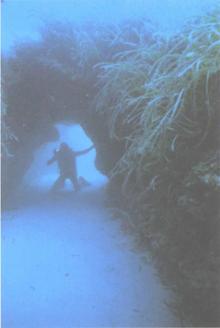 Underworld: The Mysterious Origins of Civilization
Underworld: The Mysterious Origins of Civilization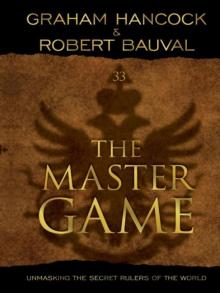 The Master Game: Unmasking the Secret Rulers of the World
The Master Game: Unmasking the Secret Rulers of the World America Before
America Before Entangled
Entangled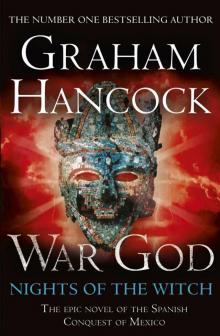 War God: Nights of the Witch
War God: Nights of the Witch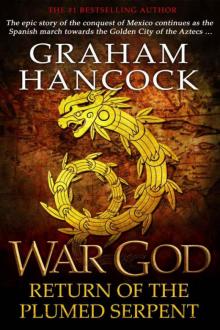 War God: Return of the Plumed Serpent
War God: Return of the Plumed Serpent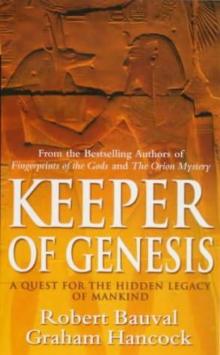 The Message of the Sphinx AKA Keeper of Genesis
The Message of the Sphinx AKA Keeper of Genesis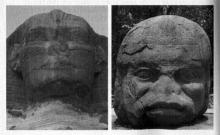 Fingerprints of the Gods
Fingerprints of the Gods The Sign and the Seal
The Sign and the Seal The Mars Mystery: The Secret Connection Between Earth and the Red Planet
The Mars Mystery: The Secret Connection Between Earth and the Red Planet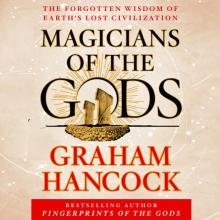 Magicians of the Gods: The Forgotten Wisdom of Earth's Lost Civilization
Magicians of the Gods: The Forgotten Wisdom of Earth's Lost Civilization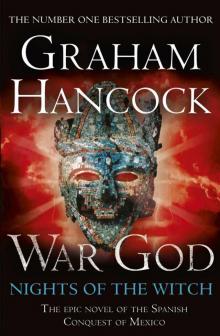 War God
War God Underworld
Underworld The Mars Mystery
The Mars Mystery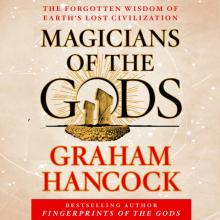 Magicians of the Gods
Magicians of the Gods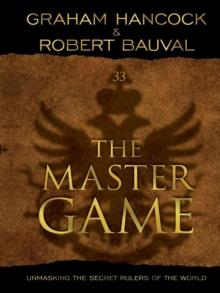 The Master Game
The Master Game